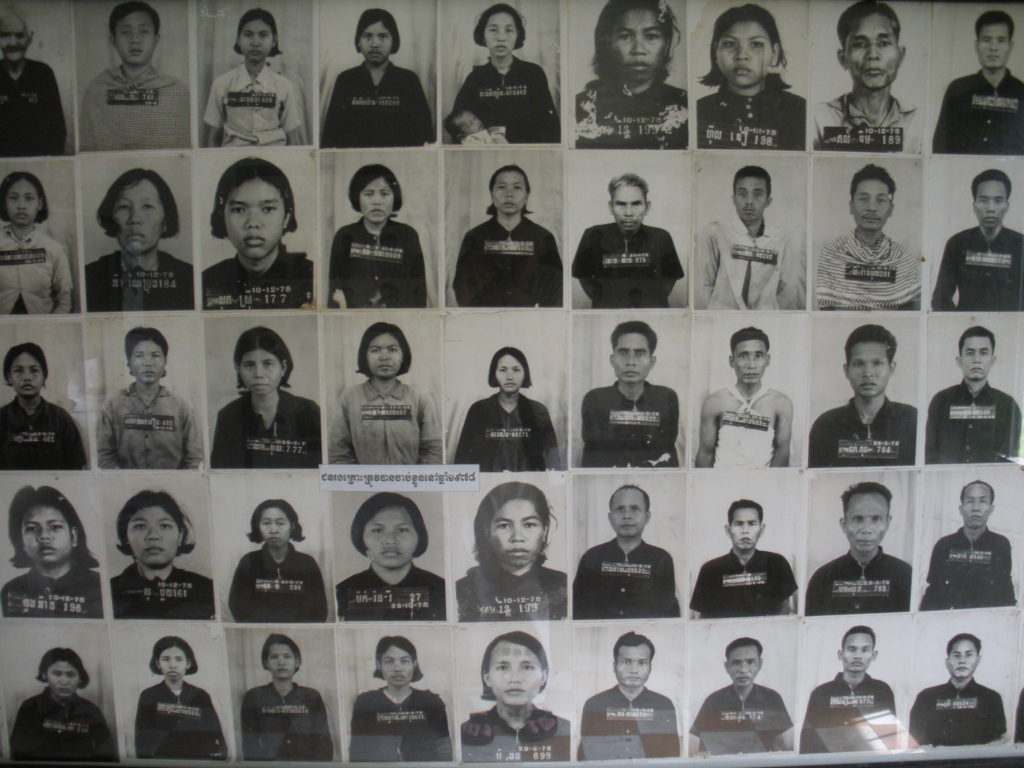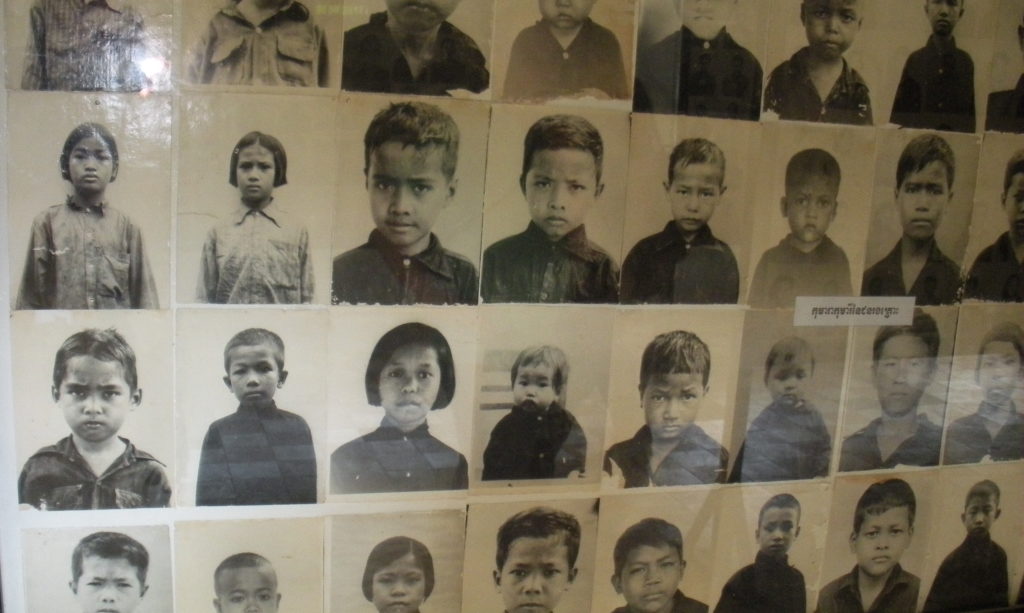This afternoon I visited Tuol Sleng, the torture prison set up in a former high school during the Khmer Rouge. Through an audio tour I learned about the Khmer Rouge’s goals, methods, and finally their fall from power. Similar to the concentration camps in Germany, the documentation of the people who were “processed” is abundant, despite much of it having been destroyed. Pictures, shackles, clothes, tiny cells, barbed wire to prevent suicide by jumping, iron beds, and paintings chronicle stories of crimes against humanity. I am left aching for the pain of the specific people I’ve seen and wondering at how a country lives with this? The cruelty we are willing to inflict upon one another in the right conditions is staggering. Cambodia is not alone in having such a legacy and psychology teaches us that we are all capable, in the right circumstances. But how do we truly make sure it never happens again? In the tour, the audio guide urged us to remember, to tell the stories and look at the pictures and feel the horror so that we will not allow it.

I am reminded of the importance of words. There is a poster in the 7th grade classroom where I work that reads “Watch your thoughts, they become your words. Watch your words, they become your actions. Watch your actions, they become your habits. Watch your habits, they become your destiny.” It matters how we talk about each other. It matters if we allow people to become numbers, “cockroaches”, “it”, “monkeys”, “rats”, “illegals”, “retards”, etc. It’s so small and simple, yet challenging to not just refuse and opt out, but directly refute language habits of those around us. If we find it challenging to ask someone not to use a term, though, how much harder is it to ask stand up for the ‘other’ if the ‘other’ is being harmed? We are all responsible and we are all culpable.

For me, though, it’s always the children. When I first read stories of the Holocaust, then of Soviet prison camps, then Rwanda and here in Cambodia, there was and is something that shatters me when I learn of the abuse and murder of the children and babies. Perhaps this is deep within each of us, a primal instinct to protect the young and vulnerable. Perhaps we know that where the vulnerable are abused, no one is safe.
Stories, pictures, cruelty, the ‘others’ … When I visited South Korea I became aware of my lack of ‘world’ education. In America, like many snippets of world history…the history of the Korean War is not taught. We have no idea how grateful S Koreans are for a continuing US presence that protects freedom. I visited the demilitarized zone between N and S Korea. I doubt that I will ever forget video footage of a naked (about 5 year old) boy crying next to his dead parents. I met a Korean man on the streets of Seoul who sang the Star Spangled Banner to me. It’s important to remember and to tell the stories…to praise those who found a different path…and lift up those who sacrificed on our behalf. I’m a bit envious that you are getting to do this good work, Crystal and family.
Yes! Well said Carol. Remembering is sad and hard sometimes, but it matters. If you’re envious, you can always come visit 🙂